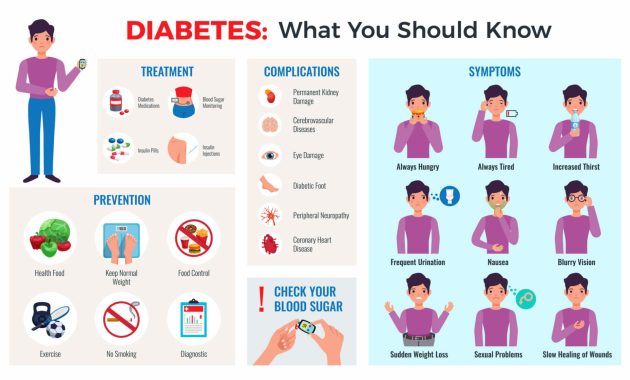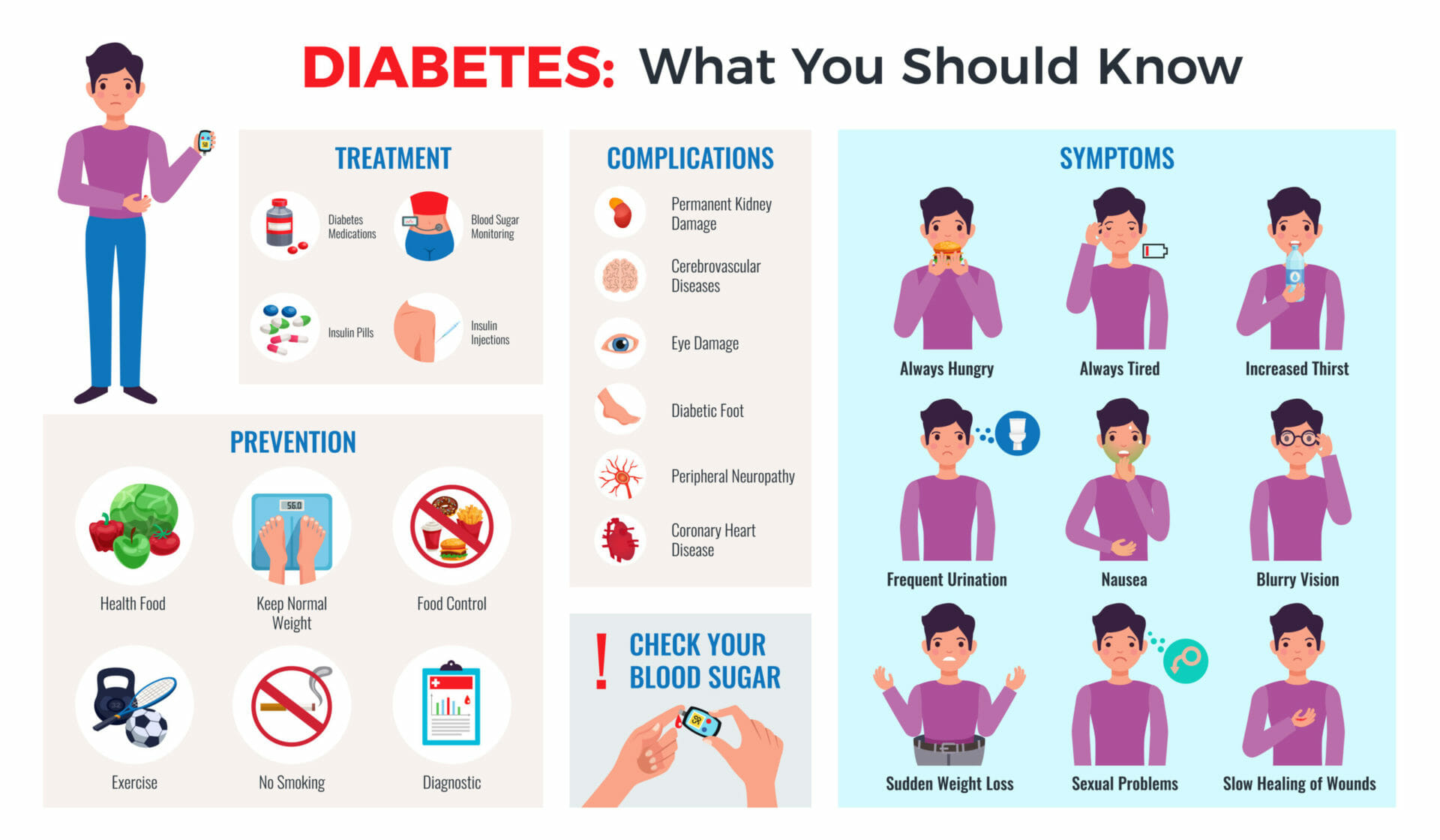
How to Know if Your Diabetes Plan Is Working: A Comprehensive Guide
Managing diabetes is a lifelong commitment. It requires constant vigilance, adjustments, and a solid understanding of how your body reacts to various treatments and lifestyle choices. But how do you know if the diabetes plan you’ve painstakingly crafted is actually working? This guide provides a comprehensive overview of the key indicators and strategies to assess the effectiveness of your diabetes management plan. We will explore various methods, from blood glucose monitoring to lifestyle adjustments, to empower you to take control of your health and ensure your diabetes plan is on track. The question, “How to Know if Your Diabetes Plan Is Working” is crucial to your long-term health.
Understanding Your Diabetes Plan
Before diving into assessment methods, it’s essential to understand the components of a typical diabetes plan. This plan usually includes:
- Medication: Oral medications or insulin injections to regulate blood sugar levels.
- Diet: A carefully planned meal plan focusing on portion control, carbohydrate counting, and healthy food choices.
- Exercise: Regular physical activity to improve insulin sensitivity and overall health.
- Blood Glucose Monitoring: Regular self-monitoring of blood sugar levels using a glucose meter.
- Regular Checkups: Visits to your healthcare provider for checkups, blood tests, and adjustments to your plan.
A well-structured diabetes plan is personalized. It considers your individual needs, preferences, and the type of diabetes you have (Type 1, Type 2, or gestational diabetes). The goal is to maintain blood glucose levels within a target range, minimizing the risk of diabetes-related complications. The success of your plan hinges on these elements. Therefore, understanding “How to Know if Your Diabetes Plan Is Working” is critical.
Blood Glucose Monitoring: The Primary Indicator
Blood glucose monitoring is the cornerstone of diabetes management. It provides real-time feedback on how your body responds to food, medication, and exercise. Regular monitoring helps you identify patterns and make necessary adjustments to your diabetes plan. The importance of blood glucose monitoring cannot be overstated when considering “How to Know if Your Diabetes Plan Is Working”.
Monitoring Frequency: The frequency of blood glucose monitoring varies depending on your diabetes type, treatment plan, and individual needs. Your healthcare provider will advise you on the appropriate frequency. People on insulin often need to check their blood sugar multiple times a day, while those on oral medications may check less frequently.
Target Ranges: Your healthcare provider will establish target blood glucose ranges. These ranges typically vary depending on the time of day (before meals, after meals, bedtime) and individual factors. Aiming for your target ranges is a key indicator of a successful diabetes plan.
Analyzing Results: Keep a log of your blood glucose readings. This log helps you identify trends, such as consistently high readings after meals or low readings during exercise. Share this log with your healthcare provider during your checkups. They can then make informed decisions about your treatment plan. Remember, analyzing blood glucose readings is a core component of “How to Know if Your Diabetes Plan Is Working”.
A1C Testing: A Long-Term View
While blood glucose monitoring provides a snapshot of your blood sugar levels, the A1C test offers a broader picture. The A1C test measures your average blood sugar levels over the past two to three months. It provides a more comprehensive assessment of your diabetes control.
Target A1C Levels: Your healthcare provider will set a target A1C level. This level typically varies depending on your age, overall health, and the presence of any diabetes-related complications. The American Diabetes Association generally recommends an A1C of less than 7% for most adults with diabetes. Achieving your target A1C is a strong indicator that your diabetes plan is working.
Frequency of Testing: A1C testing is usually done every three to six months. Your healthcare provider may recommend more frequent testing if your blood sugar levels are not well-controlled or if you are making changes to your treatment plan. Regular A1C testing is vital when you’re trying to figure out “How to Know if Your Diabetes Plan Is Working”.
Recognizing Symptoms and Preventing Complications
Effective diabetes management aims to prevent or delay the onset of diabetes-related complications. Understanding the symptoms of these complications is crucial. This understanding can help you assess “How to Know if Your Diabetes Plan Is Working”.
Common Complications:
- Eye Problems (Retinopathy): Regular eye exams are essential to detect and treat retinopathy. Look for blurred vision, floaters, or vision loss.
- Kidney Disease (Nephropathy): Monitor kidney function through urine tests and blood tests. Swelling in your feet or ankles can be a sign.
- Nerve Damage (Neuropathy): Symptoms include numbness, tingling, or pain in your hands or feet.
- Heart Disease: High blood sugar increases the risk of heart disease. Monitor your blood pressure and cholesterol levels.
Early Detection and Intervention: Regular checkups, screenings, and prompt treatment of any complications are crucial. If you experience any symptoms, report them to your healthcare provider immediately. This is part of the process of determining “How to Know if Your Diabetes Plan Is Working”.
Lifestyle Factors and Their Impact
Lifestyle factors play a significant role in diabetes management. Your diet, exercise routine, and stress levels can significantly impact your blood sugar levels. Modifying these factors can greatly enhance the effectiveness of your diabetes plan.
Dietary Adjustments: Following a balanced meal plan that is rich in fiber, lean protein, and healthy fats. Limit your intake of processed foods, sugary drinks, and excessive carbohydrates. Working with a registered dietitian can help you create a personalized meal plan that aligns with your needs and preferences. This is part of understanding “How to Know if Your Diabetes Plan Is Working”.
Exercise and Physical Activity: Regular physical activity improves insulin sensitivity. It also helps you maintain a healthy weight. Aim for at least 150 minutes of moderate-intensity exercise per week. Consult your healthcare provider before starting a new exercise program. This is an important part of “How to Know if Your Diabetes Plan Is Working”.
Stress Management: Stress can raise blood sugar levels. Practice stress-reducing techniques such as meditation, yoga, or deep breathing exercises. Getting enough sleep is also crucial for managing stress and blood sugar. Consider this when you are trying to determine “How to Know if Your Diabetes Plan Is Working”.
Medication Adherence and Effectiveness
Medication is an essential part of most diabetes plans. Taking your medications as prescribed is crucial for controlling your blood sugar levels. Understanding how your medication is working is key to assessing “How to Know if Your Diabetes Plan Is Working”.
Taking Medication as Prescribed: Follow your healthcare provider’s instructions for taking your medications. This includes the correct dosage, timing, and method of administration. Set reminders and use pill organizers to help you stay on track. This is a critical part of figuring out “How to Know if Your Diabetes Plan Is Working”.
Monitoring for Side Effects: Be aware of the potential side effects of your medications. Report any side effects to your healthcare provider immediately. They may need to adjust your dosage or switch medications. This is an important step in assessing “How to Know if Your Diabetes Plan Is Working”.
Regular Reviews: Regularly review your medications with your healthcare provider. Ensure that your current medications are still appropriate and effective for your condition. Your doctor will use this information to determine “How to Know if Your Diabetes Plan Is Working”.
The Role of Regular Checkups and Professional Guidance
Regular checkups with your healthcare provider are vital for assessing the effectiveness of your diabetes plan. These checkups provide an opportunity to monitor your blood sugar levels, assess your overall health, and make necessary adjustments to your treatment plan. Your doctor can help you to understand “How to Know if Your Diabetes Plan Is Working”.
Comprehensive Exams: During your checkups, your healthcare provider will review your blood glucose readings, A1C results, and any other relevant lab tests. They will also perform a physical examination to assess your overall health. They can help you to determine “How to Know if Your Diabetes Plan Is Working”.
Screenings: Your healthcare provider will conduct screenings for diabetes-related complications, such as eye exams, kidney function tests, and foot exams. Early detection and treatment of complications are essential for preserving your health. This is part of assessing “How to Know if Your Diabetes Plan Is Working”.
Adjustments to Your Plan: Based on your test results and overall health, your healthcare provider may adjust your medication, diet, or exercise plan. They may refer you to other healthcare professionals, such as a registered dietitian or a certified diabetes educator, for additional support. This is a key part of the process to “How to Know if Your Diabetes Plan Is Working”.
When to Seek Additional Support
Sometimes, you may need additional support to manage your diabetes effectively. Don’t hesitate to seek help from healthcare professionals. You can assess “How to Know if Your Diabetes Plan Is Working” with their help.
Certified Diabetes Educators (CDEs): CDEs can provide education and support to help you manage your diabetes. They can help you develop a personalized diabetes plan. They can also help you learn how to monitor your blood sugar. They can also teach you how to adjust your medications and lifestyle choices. CDEs are a great resource when trying to figure out “How to Know if Your Diabetes Plan Is Working”.
Registered Dietitians (RDs): RDs can help you develop a meal plan that meets your nutritional needs. They can also teach you about carbohydrate counting and other dietary strategies. RDs are a great source of information when assessing “How to Know if Your Diabetes Plan Is Working”.
Mental Health Professionals: Living with diabetes can be emotionally challenging. Consider seeking support from a therapist or counselor. They can help you cope with stress, anxiety, or depression. This can help you determine “How to Know if Your Diabetes Plan Is Working”.
Conclusion: Taking Control of Your Health
Knowing if your diabetes plan is working requires a proactive approach. This includes regular blood glucose monitoring, A1C testing, and awareness of your body. It also includes lifestyle factors, medication adherence, and regular checkups. By understanding the key indicators and strategies discussed in this guide, you can effectively assess the effectiveness of your diabetes plan. You can take control of your health, and reduce the risk of diabetes-related complications. Remember that “How to Know if Your Diabetes Plan Is Working” is an ongoing process. It requires commitment, collaboration with your healthcare team, and a willingness to make adjustments. This is the path to a healthier, more fulfilling life. [See also: Related Article Titles] on the importance of regular checkups and screenings.

